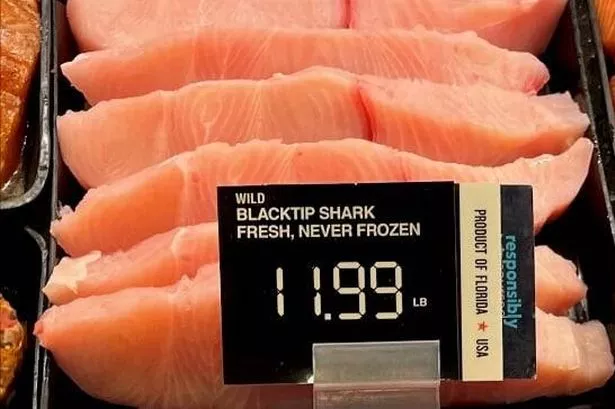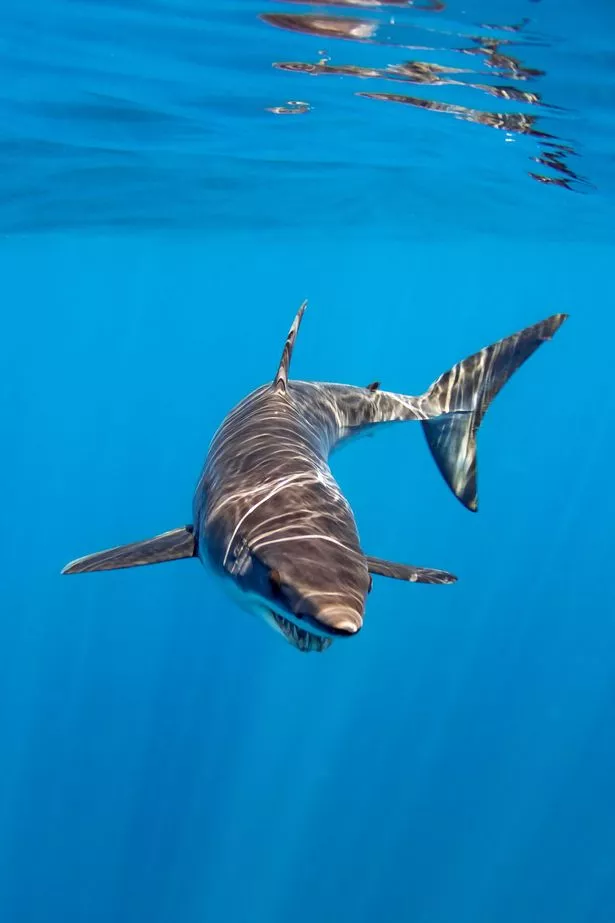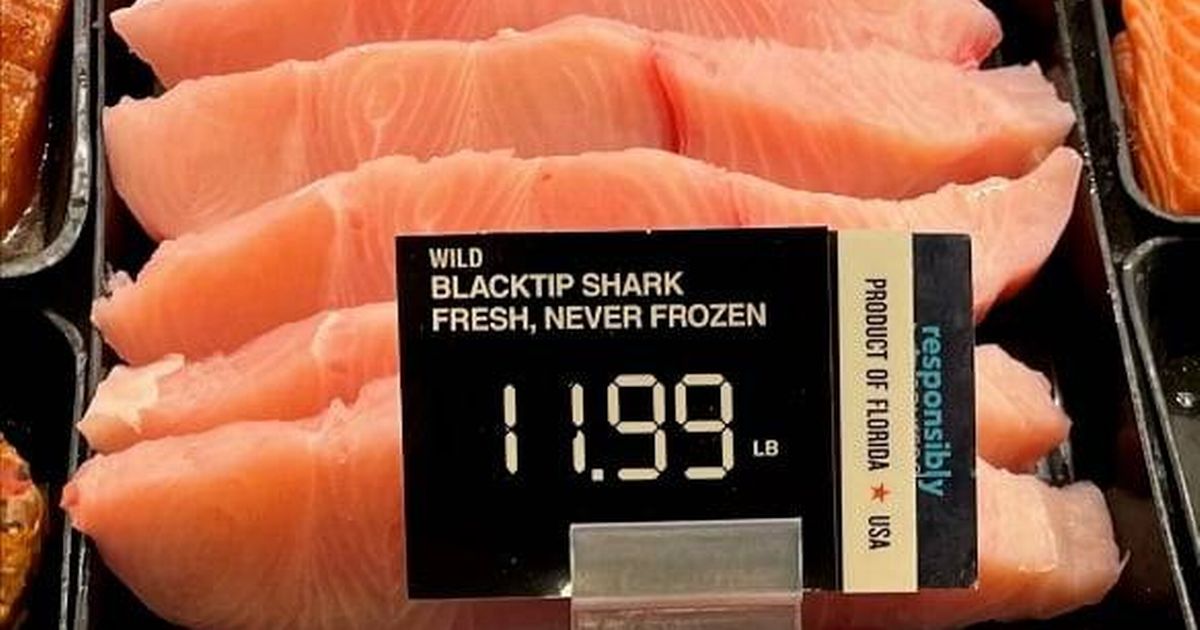Shark meat is being sold in U.S. grocery stores, seafood markets, and online vendors and often comes from endangered species, a new study has found
16:34, 14 Sep 2025Updated 16:35, 14 Sep 2025
 Endangered shark meat was found by testers
Endangered shark meat was found by testers
A shocking new report has revealed that meat from “critically endangered” sharks is being sold in supermarkets. Researchers discovered that shark meat available in US supermarkets, fish markets, and online retailers often originates from endangered species and is frequently mislabelled.
The team purchased and DNA barcoded 29 shark meat products to identify their species. The results showed a staggering 93% of samples were “ambiguously” labelled and contained meat from 11 different shark species.
Among the identified species were the great hammerhead and scalloped hammerhead, both categorised as “critically endangered” by the International Union for Conservation of Nature (IUCN). Since the 1970s, shark populations have plummeted by over 70% due to unsustainable practices such as overfishing, habitat destruction, pollution and climate change.
 Products labelled as Mako Shark were something very different(Image: Mark Chivers via Getty Images)
Products labelled as Mako Shark were something very different(Image: Mark Chivers via Getty Images)
However, the study exposed that meat from endangered shark species is still being sold to American consumers, sometimes for as little as $2.99 (£2.99) per lb.
The study’s lead author, Dr Savannah Ryburn from the University of North Carolina, stated: “Mislabelling and ambiguous labelling remove consumers’ ability to choose what they are putting in their bodies.
“For example, two species in our study, scalloped hammerhead and great hammerhead, were ambiguously labelled as ‘shark’ – even though they are strongly advised against consumption due to their very high mercury levels.
“Without accurate and precise labelling, consumers cannot avoid purchasing these products.”
The research squad discovered that out of the 29 products tested, 27 were simply labelled as “shark” or “mako shark” without specifying the species. Even among the two products that did specify a species, one was incorrectly labelled.
Almost a third (31%) of the purchased samples turned out to be from four endangered or critically endangered species: great hammerhead, scalloped hammerhead, tope, and shortfin mako shark. The rest were from another seven species, including the vulnerable spinner, lemon, common thresher, and blacktip shark, and the near threatened smooth-hound and Pacific angelshark.
The researchers, whose findings were published in the journal Frontiers in Marine Science, say their results highlight a “major gap” in seafood transparency and consumer safety.
Professor John Bruno, co-instructor of the seafood forensics class that conducted the research, stated: “The United States should require seafood distributors to provide species-specific names for the products being sold.”
He pointed out that shark meat is known to contain high levels of mercury, which can pose “serious risks” to human health, particularly for children and expectant mothers.
The research team stressed that accurate labelling is crucial not only for conservation, but also for consumer protection.
Dr Ryburn commented: “Sharks such as great and scalloped hammerheads are the ocean’s equivalent of lions, and we were shocked by how cheaply the meat of these rare, long-lived apex predators was sold.
“Some samples were only $2.99 per pound. The legality of selling shark meat in the United States depends largely on where the shark was harvested and the species involved, due to regulations under CITES and the Endangered Species Act.
“However, by the time large shark species reach grocery stores and markets, they are often sold as fillets with all distinguishing features removed, making it unlikely that sellers know what species they are offering.”
The researchers argue that more stringent regulations and oversight of seafood labelling practices are necessary.
Dr Ryburn stated: “Sellers in the United States should be required to provide species-specific names, and when shark meat is not a food security necessity, consumers should avoid purchasing products that lack species-level labelling or traceable sourcing.”
For the latest breaking news and stories from across the globe from the Daily Star, sign up for our newsletters.

